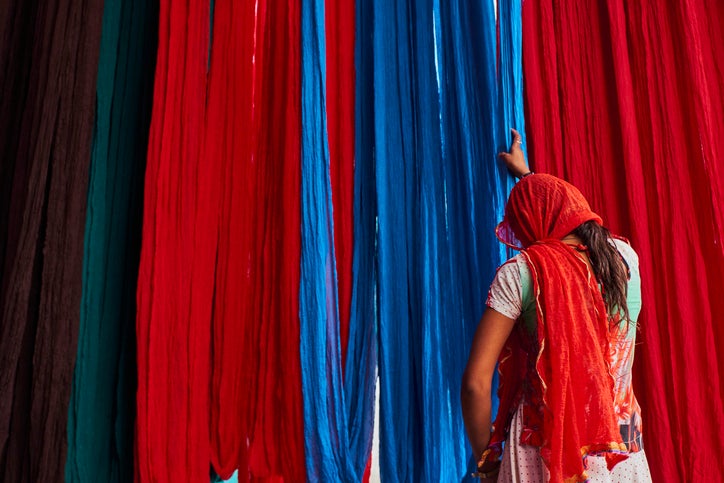
The Ethical Trading Initiative (ETI) has published a report on the declining number of women in the Bangladesh ready-made-garment (RMG) industry.
The report estimates that women now comprise approximately 54% of the industry, stating that “These changes have significant implications for women’s economic empowerment, as well as the well-being of their families and communities.”

Discover B2B Marketing That Performs
Combine business intelligence and editorial excellence to reach engaged professionals across 36 leading media platforms.
The research was conducted in collaboration with BRAC University in Bangladesh and was funded by the Sustainable Textile Initiative: Together for Change, which is supported by the Ministry of Foreign Affairs of the Netherlands.
It looked at entry into and exit from the RMG industry, the reasons for entry and exit by women workers in the RMG sector, and the implications of these changes for women’s participation in the RMG sector.
337 factories, 370 current women garment workers, 285 former women garment workers, and 183 potential women workers were surveyed. This was alongside nine focus groups with 89 participants and 16 key informant interviews with key stakeholders, including buyers and suppliers.
What were the report’s main findings?
- the proportion of women garment workers has continued to decline from 54.22% in 2015, falling slightly to 53.89% in 2018 and 53.65% in 2021. This is a significant decline compared to 1980s when 80% of the workers in the sector were women.
- Among workers who left the RMG sector in 2021, 51% were women compared to 49% in 2015. This shows a slight increase in exit numbers.
An overwhelming majority of the workers who left the sector (89%) responded that their departure was voluntary in that their contracts were not terminated by factory management.

US Tariffs are shifting - will you react or anticipate?
Don’t let policy changes catch you off guard. Stay proactive with real-time data and expert analysis.
By GlobalDataWhat are the reasons for women leaving the Bangladesh RMG industry?
- Caring for children was the main reason provided
- Pregnancy and discrimination for being pregnant
- Age appropriateness
- Difficulty balancing work and home responsibilities
- Factors related to working conditions, including harassment, violence, long working hours and low salaries
Focus group participants noted that factories put excess pressure on workers by requiring them to produce upwards of 180 to 200 units every hour. According to the report, a worker can typically produce an output of 100 to 120 units in an average workday.
The survey found that 8% of all current women workers wanted to leave the RMG sector after one year and 27% after five years.
It was also observed that female workers are 15% more likely to leave garment work in the long run if they experience any harassment.
The ETI found that upward mobility is extremely limited for women garment workers. About 86% of workers joined the factory as helpers, 66% left as operators and only 1% as supervisors. However, this was not cited by participants as a reason for leaving the industry.
What are the implications of this decline?
- Reduced income, impacts on social networks, agency and worker voice for women
- Lower labour productivity in factories and more investment and time spent on recruiting
- High costs of production for buyers, delivery delays and increased risks of subcontracting by factories to meet to production deadlines
- Impact on advancing gender equality and women’s economic empowerment
What are the report’s main recommendations?
- For factories to create healthy work environments, reduce demands for overtime, ensure regular payments and provide facilities for childcare and healthcare
- For brands and buyers to review purchasing practices, implement effective gender-sensitive human rights due diligence, and invest in programmes to support factories that do not discriminate against women
- For the Bangladesh Government to review legal frameworks and policies and convene stakeholders to collectively address issues
Some companies have already been working to implement better working conditions in Bangladesh. Recently, Mango launched an education initiative in garment producing regions in the country. However, more will need to be done to retain skilled women workers in the Bangladesh RMG industry.





